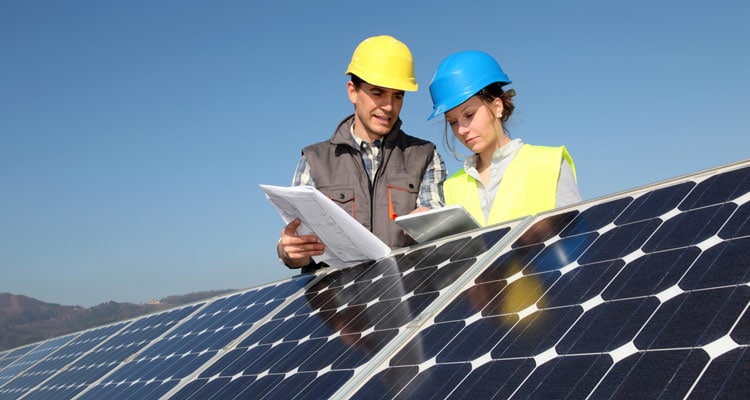The most useful services for selling a PV system
The increase in the number of existing commercial PV plant helped to develop a lively secondary market where existing plants can be traded. For a successful and professional handling of such sales of running plants, two things are particularly important: a structured approach, as well as sufficient transparency about the condition of the plant and the process of the transaction. Together, this makes it much easier for both parties to agree on a purchase price and to complete the sale within a reasonable time.
In the following, we will explain which factors are of particular importance for a successful sale and which additional services can help sellers to achieve a fair market price for their asset.
Selling a running PV plant: transparency, fair market value and complete documentation.
The goal of the seller of a PV plant is to achieve the highest possible sales price and to carry out the sales process as quickly as possible. In addition, subsequent legal disputes with the buyer should be avoided. It is possible for the seller to influence these factors – through the right preparation, as well as the selection of the right service partners.
Yield report/performance check:
In order to reach a commercial agreement with a buyer, the question of a fair purchase price is central for both parties. It can therefore be useful for sellers to clarify the actual performance of the plant by means of a yield report, if necessary in combination with a performance check. The yield report offers a long-term potential analysis of the plant and helps to evaluate the theoretical performance of a plant, based on an analysis of its location, weather data and the local topography. The “Performance Check” compares the actual solar radiation data of the last years with the performance of a plant, so that a statement can be made on the actual performance of the plant. The comparison of these values with the data of the yield report can be used to prove that the recent yields of the plant are below the actual performance for temporary reasons, such as technical defects, longer-term soiling, or shading. These are damages that can be restored relatively easily, so that the maximum performance of the plant can be quickly restored. If the seller aims to optimize the sales price of the PV plant, these damages should be fixed before the transaction.
Project assessment:
Usually, an interested buyer commissions a technical and legal due diligence prior to purchase, through which the PV plant will be subjected to a comprehensive review. This provides the buyer with an independent third-party evaluation of the plant to which can referred in price negotiations. For the same reason, it may make sense even for sellers to commission a PV-project assessment before selling a PV-plant. It provides an own, independent expertise and hence the opportunity to substantiate his asking price for the final negotiations.
Legal services:
Once a purchase price has been agreed, the next step is to draw up a purchase contract or review the contract submitted by the buyer. For this step, it is recommended to consult a specialized law firm. Given the many specifications that a PV system may contain, it is usually not a good solution to use standard contracts that are available online. If the impending insolvency of the seller and the associated desire for fresh liquidity is the reason for the sale, specialist lawyers can also provide advice on insolvency law.
Particularly with a view to the speed of closing, sellers can help to make the transaction process as expeditious as possible. Above all, this relates to the complete presentation of the documents required for the purchase. This includes extensive project documents and documentation that must be retained by law (see MtS Operator’s Guide, Article 2.6: “Important documents and their retention periods”, p. 19ff). Further relevant documents include technical documentation and system data, plans of the PV system and the installations, economic documents such as the feed-in commitments of the grid operator, as well as expert opinions, e.g. on statics for roof plants or soil expertise for ground-mounted plants.
It thus becomes apparent that by preparing properly and maintaining complete and comprehensible documentation, a seller can make a significant contribution to accelerating the purchase process. Certain services help sellers to strengthen their own negotiating position, increase the sale value of an asset, and minimize the risk of subsequent disputes with the buyer.
In this regard, selecting the right service providers plays an important role. Since there are several service providers in the PV sector, it makes sense to obtain various offers and compare them with each other. Via Milk the Sun’s marketplace, requests for all relevant transaction-related services can be made in just a few steps. These are forwarded to suitable service partners, so that customers can select the most attractive offer and get in touch with the contact persons directly.
Christian Schäfer, Business Development Manager at Milk the Sun





